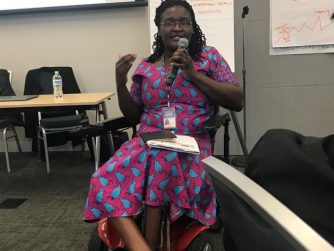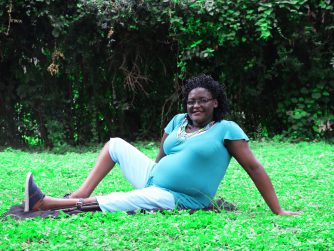There is limited knowledge about the pregnancy, childbirth and motherhood experiences of women living with a disability. Traditionally, such women have been viewed unsympathetically by society and professionals have challenged their fitness for motherhood. The situation is compounded by a lack of robust evidence regarding the life experience of pregnant women with a disability and their perspective on childbirth.

Women with disability welcomed pregnancy as affirming their identity and worth as women and as mothers. They encounter mixed reactions from partners and families, while professionals tend to view them as liabilities, regarding most women with disabilities as ‘high risk’.
These reactions intensify the fears of potential mothers with disabilities. The general feeling is that the society perceives that they are unable to make choices and maintain control over their childbirth experiences. The reproductive health services, the antenatal care and post natal care services are tailor made for use by the ‘normal’, able bodied women and are not adapted to the special needs of women with disabilities.
Moreover, a proportion of women with disabilities are usually advised to terminate their pregnancies with excuses such as “inability to carry the pregnancy to term” “Inability to offer adequate parenting to the child” High cost of care giver during the prenatal and post natal period” e.t.c.
Some mothers with intellectual disabilities are denied the opportunity to be custodians of their children. The children are in most cases taken away from them after birth in the name of protecting the children from harm that can arise due to the disability of the mother
pregnant women with disabilities, in particular those labeled ‘high risk’, expect equal ease of access to appropriate maternity care and consultation as that enjoyed by their mainstream, ‘low risk’ or ‘normal’ counterparts.
Maternity services should foster these vulnerable women’s independence and autonomy as far as practicable and uphold their identity and worth as women and as mothers. Disability is not a ticket to denial of reproductive rights.
As a believer in procreation it is incorrect to sterilize a potential mother without her consent WORST of all to sterilize a woman on the basis of disability! Every potential mother has a right to procreation and should be given an opportunity to make a choice on whether to have a baby or not.
By Mildred Omino
Bintisphere Society








I like this site it’s a master piece! Glad I discovered this ohttps://69v.topn google.Raise blog range